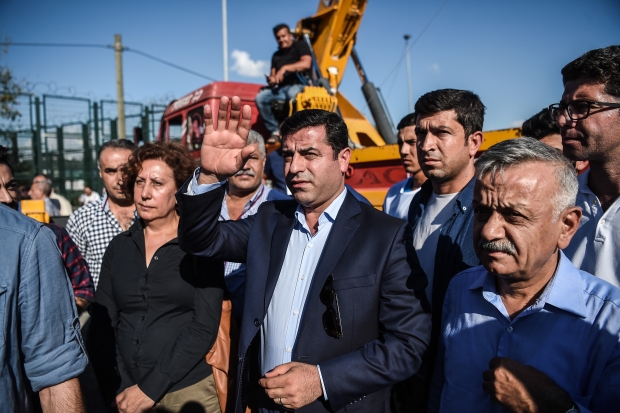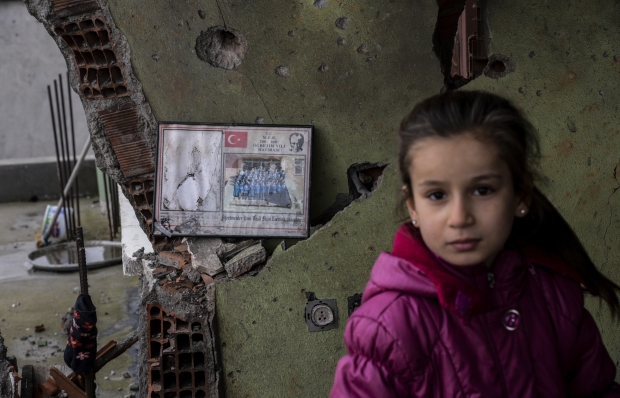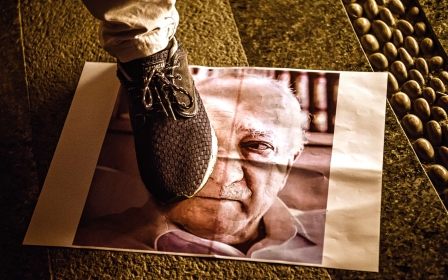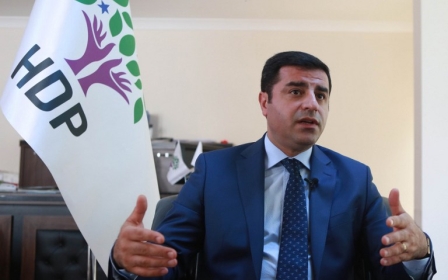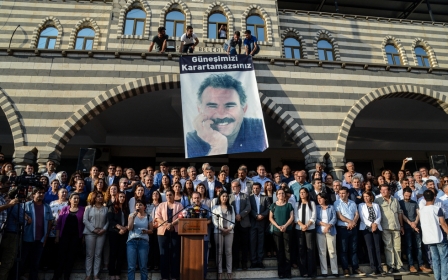Turkey arraigns pro-Kurd MPs for first time since immunity bill
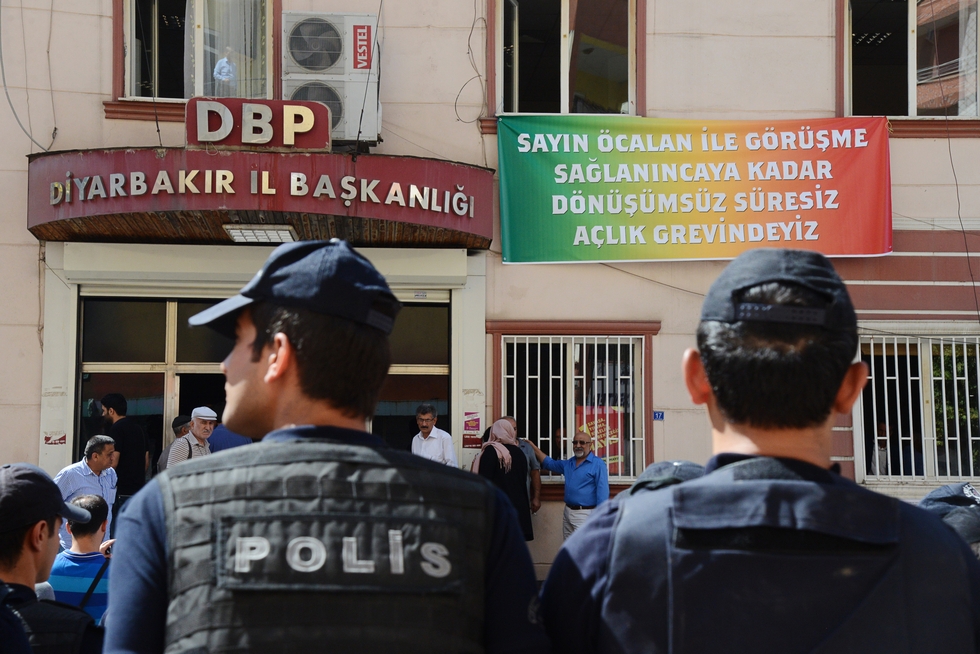
ISTANBUL, Turkey – A court in the south-eastern city of Diyarbakir issued instructions on Monday for the arraignment of eight MPs from the country’s pro-Kurdish party after they failed to show up for a hearing.
Turkish parliament voted in May to lift parliamentary immunity for the PMs, thereby allowing prosecutors to open legal proceedings against them.
The bill was ratified by Turkish President Recep Tayyip Erdogan in June. Commentators said at the time that MPs from the pro-Kurdish People’s Democratic Party (HDP) would be the most affected by this change in legislation.
The eight HDP MPs arraigned on Monday were Nadir Yildirim, Alican Onlu, Dirayet Tasdemir, Besime Konca, Selma Irmak, Ahmet Yildirim, Osman Baydemir and Caglar Demirel. The party is the third largest in parliament.
‘Justice system under immense political pressure’
The HDP’s Ertugrul Kurkcu told Middle East Eye that the party finds the court order to be unacceptable and that it shows how the justice system is under immense political pressure created by Erdogan and his Justice and Development Party (AKP).
“This is legal weirdness and nothing else,” he said. “Technically, yes, the court can issue such an order but it is a political decision, not a legal one. It is just a continuation of the AKP’s process to put the HDP under pressure.”
'This is legal weirdness and nothing else'
- Ertugrul Kurkcu, HDP
The lawmakers are being tried as part of the main case involving the Kurdish Communities Union (KCK). The KCK is an umbrella group that contains various Kurdish groups, including the Kurdistan Workers’ Party (PKK). The PKK is listed as a terrorist organisation by Turkey, the US and the EU.
Prosecutors in that case are trying to prove links between 191 Kurdish politicians and the PKK. Until June, the eight MPs were exempt from being part of the case due to their immunity.
HDP: These MPs will not attend court
The lawmakers failure to show up for Monday’s hearing resulted in the court issuing an arraignment order for them to be forcibly brought to court by the police for the next scheduled hearing on 21 September. Monday’s hearing was the 62nd court session in the case.
Kurkcu said the court hearings are taking place daily and that it would be unreasonable to expect MPs to leave their jobs in parliament and spend their days waiting at court.
“First these MPs were mentioned as witnesses and expected to show up in court,” he said. “After the lifting of immunity, they are trying to make them turn up by force. Our MPs will not attend the court session.”
The charges include “managing a terrorist organisation,” “being part of a terrorist organisation by assisting it,” and “engaging in terrorist propaganda”. The prosecution is seeking prison terms of five to 22 years for 148 for those implicated in the case if they are found guilty.
AKP officials have always rejected allegations of political pressure on the judiciary and say they have no influence over judicial decisions.
“The state of emergency measures are not just being used in relation to the coup attempt. They are being implemented wholesale by the judiciary for whatever they want,” he said.
“The solution to the Kurdish problem lies not in judicial actions alone but by adopting an inclusive political concept.”
Why the government has a problem with the HDP
When parliamentary immunities were lifted, the HDP had said the measure was aimed at expelling its members from parliament.
The HDP has said the bill, passed by parliament on 20 May, could lead to the prosecution of 50 of its deputies out of its total contingent of 59. Erdogan and the AKP government regard the HDP as a political front for the Kurdistan Workers' Party (PKK).
Binali Yildirm, the Turkish prime minister, has repeatedly said during the past week that there is no hope for a renewal of the peace process. During a meeting in Diyarbakir on Sunday, he lashed out at the HDP’s co chairman Selahattin Demirtas for refusing to call the PKK a terrorist organisation.
Clashes between government forces and the PKK have intensified after the failed coup attempt of 15 July. The Turkish military said on Monday that more than 150 PKK members have been killed in the last week alone. Scores of Turkish soldiers have also been killed in the fighting.
New MEE newsletter: Jerusalem Dispatch
Sign up to get the latest insights and analysis on Israel-Palestine, alongside Turkey Unpacked and other MEE newsletters
Middle East Eye delivers independent and unrivalled coverage and analysis of the Middle East, North Africa and beyond. To learn more about republishing this content and the associated fees, please fill out this form. More about MEE can be found here.


